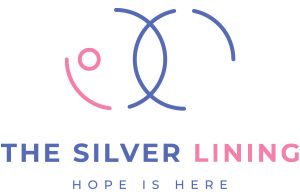I love reading books! From a very young age, books have always been my best friend. I feel reading a book is like exploring a new world. The more you read, the more you travel different worlds and grow from that experience. There are some stories that convey beautiful words of wisdom. The Buddhist tradition makes use of Zen stories to pass on the ancient words and deeds of wisdom of Zen masters through the ages, and while these stories tend to be humorous, multi-layered, paradoxical, the insights they offer are flowered with invaluable instructions for those seeking liberation. In essence, the Zen tradition views life as nothing short of a grand, silly dream, and just like anything can happen in a dream, life is about accepting all aspects precisely as they are at any given moment, and that is the only way to liberate ourselves from the unnecessary suffering that is self-inflicted every time we resist various attributes of reality or view them as being “wrong”. The path of Zen is one where one needs to stop resisting reality, and by doing so, dissociate from the superfluous drama and trauma stories, and just flow with life, uncovering all truths that may be hidden to others, and being open to all possibilities – Zen is extremely nuanced, there is playfulness as well as discipline, sophistication as well as simplicity; it is filled with tradition, yet there’s spontaneity.
According to Shaku et. al. (2013), Zen professional training and inward-attention practices improves quality of life and has an overall positive impact on mental health even in a tough and distressing environment.[1] As we are indoors in the times of a global pandemic, fascinated by the paradoxical nature of Zen parables, today, I wish to share some of my favourite Zen stories with you hoping that you will enjoy reading them.
The Tea-Cup
Nan-in, a Japanese master during the Meiji era (1868–1912), received a university professor who came to inquire about Zen. The professor said, “I am so glad to meet you! I have heard so much about Zen — in so many books, from so many people! Can you please show me Zen?”
Nan-in served tea. He poured his visitor’s cup full, and then kept on pouring. The tea kept spilling but Nan-in continued to pour. The professor watched the overflow until he no longer could restrain himself. “It is overfull. No more will go in!”
“Like this cup,” Nan-in said, “you are full of your own opinions and speculations. How can I show you Zen unless you first empty your cup?”
There’s a reason why this happens to be my favourite story. I used to be a person who had her mind made up about a thing even before experiencing it. Even today, I think a lot of times before going to a restaurant which has a rating below 4.0 on Zomato. However, there are restaurants that are old family favourites which I enjoy that don’t have that kind of rating. This is a small instance that I am sharing, but I am sure all of us have our share of preconceived notions. There are so many times we don’t try anything new because our mind is already made up. There are so many times we’ve made up our minds about something even before the discussion has taken place. There are so many times we are so scared of someone else breaking our heart that we break it ourselves. What if we could just empty our teacups and really open into the experience of everything that is? What if we could open our minds, surrender control and just bask in everything that is and all that that isn’t? How would things shift for us if we emptied our teacups and gave everything a fair shot? What else is possible? How does it get better than that?
I Left Her At The River
Two monks were walking down a path together, and they came to a river with a strong current. As they were preparing to cross, they saw a beautiful, young woman in need of help to brave the waters. Seeing the monks, she shouted towards them for help. The senior monk carried the woman on his shoulder and let her gently down on the other bank. They parted ways.
The junior monk was very upset. Hours passed and he did not say a word to the senior monk. Noticing his discomfort, the senior monk asked him, “Is something on your mind?”
The junior monk replied, “Monks are not permitted to touch a woman. How could you carry her across the river?”
The senior monk replied, “I left her at the bank hours ago. You, however, seem to be still carrying her.”
I love this story because of the simple way in which it brings to light how our mental attachment to the past actually gets in the way of living in the present moment. The senior monk sees a lady in peril and, in that moment, does what is needed, and moves on. The junior monk remains stuck in his old thought-patterns, holds on to his old belief-systems and past learnings and ideas, and finds it difficult to focus on the road ahead. To what extent have we been clinging on to our past hurts and not immersing ourselves to the full experience of the present moment? What possibilities would arise if we could cut all cords and utilize every moment of life learning, unlearning, and relearning? It’s alright if we choose to reminisce over the past, but, ultimately, it is only going to weigh us down. What if we could choose to let go of all things that aren’t serving us anymore and just be in allowance of living fully at any given moment? What magical possibilities would that bring our way? How does it get better than that? What else is possible?
The New Village
There was a person coming to a new village, relocating, and he was wondering if he would like it there, so he went to the Zen master and asked, “Do you think I will like it in this village? Are the people nice?”
The master asked back, “How were the people on the town where you come from?”
“They were nasty and greedy, they were angry and lived for cheating and stealing,” said the newcomer.
“Those are exactly the type of people we have in this village,” said the master.Another newcomer to the village visited the master and asked the same question, to which the master asked, “How were the people in the town where you come from?”
“They were sweet and lived in harmony, they cared for one another and for the land, they respected each other and they were seekers of spirit,” he replied.
“Those are exactly the type of people we have in this village,” said the master.
I have often said this before, and I shall say it yet again: the world is always your mirror. What you see in others has more to do with you than them. Everything that you perceive in this world is largely a reflection of your own attitudes and beliefs, your inner world. So, a hostile person lives in a hostile world while a loving person lives in a world filled with love. I always tell people to do continuous inner work because without working on themselves, change is not possible. Wanting to change the world is like looking at your reflection in the mirror. It does not matter how much you want your reflection to smile, it shall only happen when you decide to make the move. So, what’s getting in your way of change? What if you could get out of your own way and embody the change you wish to see? What needs to happen for you to make that possible? What are the resources that you need? What would it take for you to work towards acquiring all the resources you need? What are you waiting for?
It Will Pass
A student went to his meditation teacher and said, “My meditation is horrible! I feel so distracted, or my legs ache, or I’m constantly falling asleep. It’s just horrible!”
“It will pass,” the teacher said matter-of-factly.A week later, the student came back to his teacher. “My meditation is wonderful! I feel so aware, so peaceful, so alive! It’s just wonderful!’
“It will pass,” the teacher replied matter-of-factly.
This is another story that I really like because it is such a beautiful reminder of the transient nature of life. Nothing lasts forever – neither the good, nor the bad. Life is a wonderful journey with cycles of ups and downs, what if we could just enjoy the ride without forming any attachments? How would life be like if we truly lived moment to moment? To what extent would things differ or stay the same if we viewed every moment as an experience without assigning it labels of ‘good’ and ‘bad’? What if we extended this generosity of not assigning labels to not just our personal experiences but to everything around us? How would things begin to change? How does it get better than that? What else is possible?
Please do share what you take back from the stories. If there is a Zen parable that is your favourite, feel free to share that tale with us as well.
- Shaku, Fumio; Tsutsumi, Madoka; Goto, Hideyoshi; Arnoult, Denise Saint (2013). “Measuring the Effects of Zen Training on Quality of Life and Mental Health Among Japanese Monk Trainees: A Cross-Sectional Study.” The Journal of Alternative and Complementary Medicine 20 (5): 406-410.

